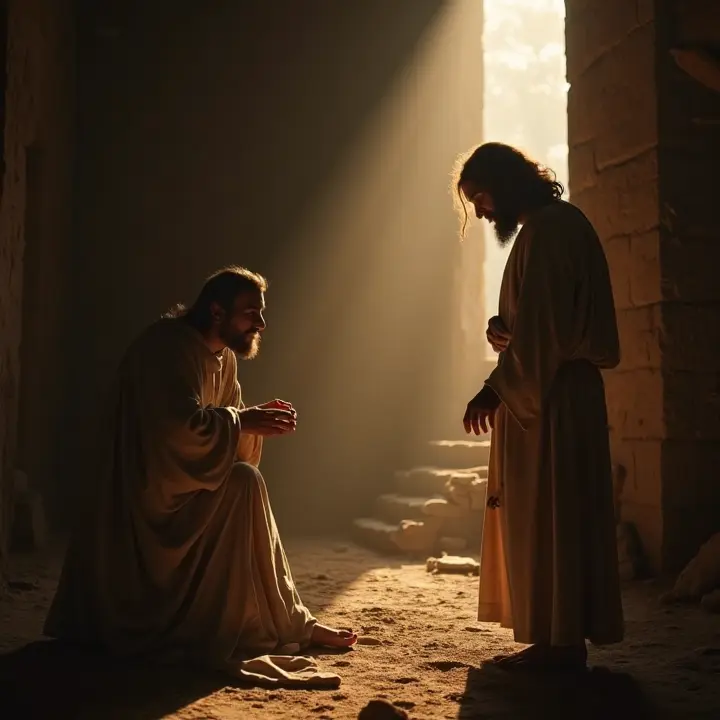In the rich tapestry of stories woven into the Bible, few are as poignant and relatable as the account of Thomas, often referred to as “Doubting Thomas.” This narrative, found in John 20:24-29, offers a profound glimpse into the human condition, the nature of faith, and the transformative power of encountering the divine.
The story unfolds in the aftermath of Jesus’ crucifixion, a time of profound grief and uncertainty for his followers. The disciples, who had witnessed the brutal death of their beloved leader, were huddled together in a locked room, fearing for their own safety. The atmosphere was thick with despair and confusion. They had seen Jesus die, and now they were struggling to make sense of the rumors that he had risen from the dead.
Thomas, one of the twelve apostles, was notably absent when Jesus first appeared to the disciples in that locked room. The other disciples, their hearts filled with a mixture of joy and disbelief, rushed to share the news with Thomas. They told him with fervor that they had seen the Lord, that Jesus had risen just as he had promised. But Thomas, a man of practicality and skepticism, was not easily swayed by second-hand accounts. He needed more than just words; he needed tangible proof. “Unless I see the mark of the nails in his hands, and put my finger in the mark of the nails and my hand in his side, I will not believe,” he declared with unwavering resolve.
Eight days later, the disciples were once again gathered in the same room, this time with Thomas present. The doors were locked, a testament to their lingering fear, but fear could not keep Jesus out. He appeared among them, his presence both familiar and otherworldly. Turning to Thomas, Jesus invited him to do precisely what he had demanded: to touch the wounds, to see for himself that he was no ghost, but a living, breathing savior.
Thomas, confronted with the risen Christ standing right before him, was struck with a profound realization. His skepticism crumbled in the face of the divine. Overwhelmed, he fell to his knees and exclaimed, “My Lord and my God!” It was a moment of raw, unfiltered faith, born out the of shattering of doubt. Jesus, in his infinite wisdom and compassion, responded gently, “Have you believed because you have seen me? Blessed are those who have not seen and yet have come to believe.”
This encounter between Jesus and Thomas is more than just a historical account; it is a timeless lesson about the nature of faith. Thomas represents the part of us that seeks concrete evidence, that struggles to reconcile the miraculous with the mundane. His doubt is not a flaw, but a reflection of our own human frailty. Jesus’ response, however, offers a profound: truth faith is not about having all the answers or seeing with our physical eyes. It is about trusting in something greater than ourselves, even when the evidence is not immediately apparent.
The story of Doubting Thomas also serves as a reminder of God’s patience and grace. Jesus did not rebuke Thomas for his skepticism; instead, he met him where he was, offering him the very proof he needed. This act of divine understanding and compassion underscores the idea that our doubts and questions are not barriers to faith, but rather opportunities for deeper understanding and connection with the divine.
In the broader context of the Bible, the story of Thomas is a bridge between the tangible and the spiritual. It reminds us that faith is a journey, not a destination. It is a process of questioning, seeking, and ultimately finding. Thomas’ experience invites us to be honest about our own doubts and uncertainties, to bring them before God, and to trust that he will meet us with the same patience and grace that he showed to Thomas.
As we reflect on this popular story from the Bible, we are reminded that faith is not about having all the answers, but about trusting in the One who holds all the answers. Thomas’ journey from to doubt belief is a mirror to our own spiritual journeys, a reminder that even in our moments of uncertainty, we can find hope and assurance in the presence of a loving and merciful God.

